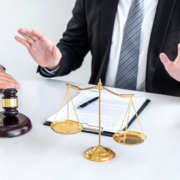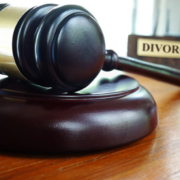When You Get Divorced…Actually Get Divorced
Many couples who have financial problems feel like they should still co-own assets after divorce. Maybe you are upside down on the mortgage on your home and you would lose money selling it. Perhaps you have debt you still want to co-own or can not split for some reason. Perhaps one of you wants out of the house but there is not enough cash to be bought out.
The problem with co-owning anything after your divorce is that you will no longer be married and co-ownership without that legal protection of marriage can be scary. A good divorce attorney can help you brainstorm ways to ensure that your assets and debts are split in such a way that you each take your fair share and, most importantly, become financially independent of one another.
You can learn a few things from this story: A couple divorced after 15 years of marriage. Upon the divorce they continued to co-own the marital home, an investment property, and a HELOC against the marital home. With this much joint ownership after a divorce, there were bound to be problems.
-
They maintained the marital home and nested their children. Each parent moved in and out according to their parenting agreement. They did this for the emotional security of their children. However they didn’t have money to maintain the house and it fell into disrepair over the years, to the point that it could not be sold for market value.
Lesson learned: While nesting may seem like a great idea, it requires substantial financial resources to maintain the home for the children, particularly when neither of you are really still invested in the home. Additionally each parent also needs a place to live when they are not with the children so you need the cash to maintain three homes.
-
The investment property was the primary responsibility of the ex-husband and after some time he tired of it. He decided to sell it, forgetting it was in joint ownership. Additionally he sold it “short sale” forgetting that the down payment was in the Heloc against the marital home. Once it was sold he had a legal quagmire on his hands in violation of the divorce agreement and now there was no asset and yet a substantial debt to pay.
Lesson learned: After your divorce it is best not to jointly own any investment or debt. As former partners, it can be hard to reach an agreement on what should be done and one partner may feel they have more right to control or make decisions.
3) The ex-husband unexpectedly died. The HELOC was only in his name and his estate immediately went bankrupt. Typically, debts are forgiven but since the house was securing the HELOC, the ex-wife had to start making the monthly payments or face a lien. Furthermore, because the HELOC account was only in the ex-husband’s name, the ex-wife had no access to the account and the bank would not discuss any particulars of the loan with her.
Lesson learned: If there is joint debt coming out of your divorce it is best to split that debt in some way and move on independently. If you must co-own anything, ensure that, in your divorce agreement, you mandate life insurance be maintained specifically for the repayment of debt.
Divorce is not easy and many times finances are a factor in your reason to split. There is always a way around a difficult situation and we can help you creatively solve your financial issues so you can independently walk into your post divorce life.






